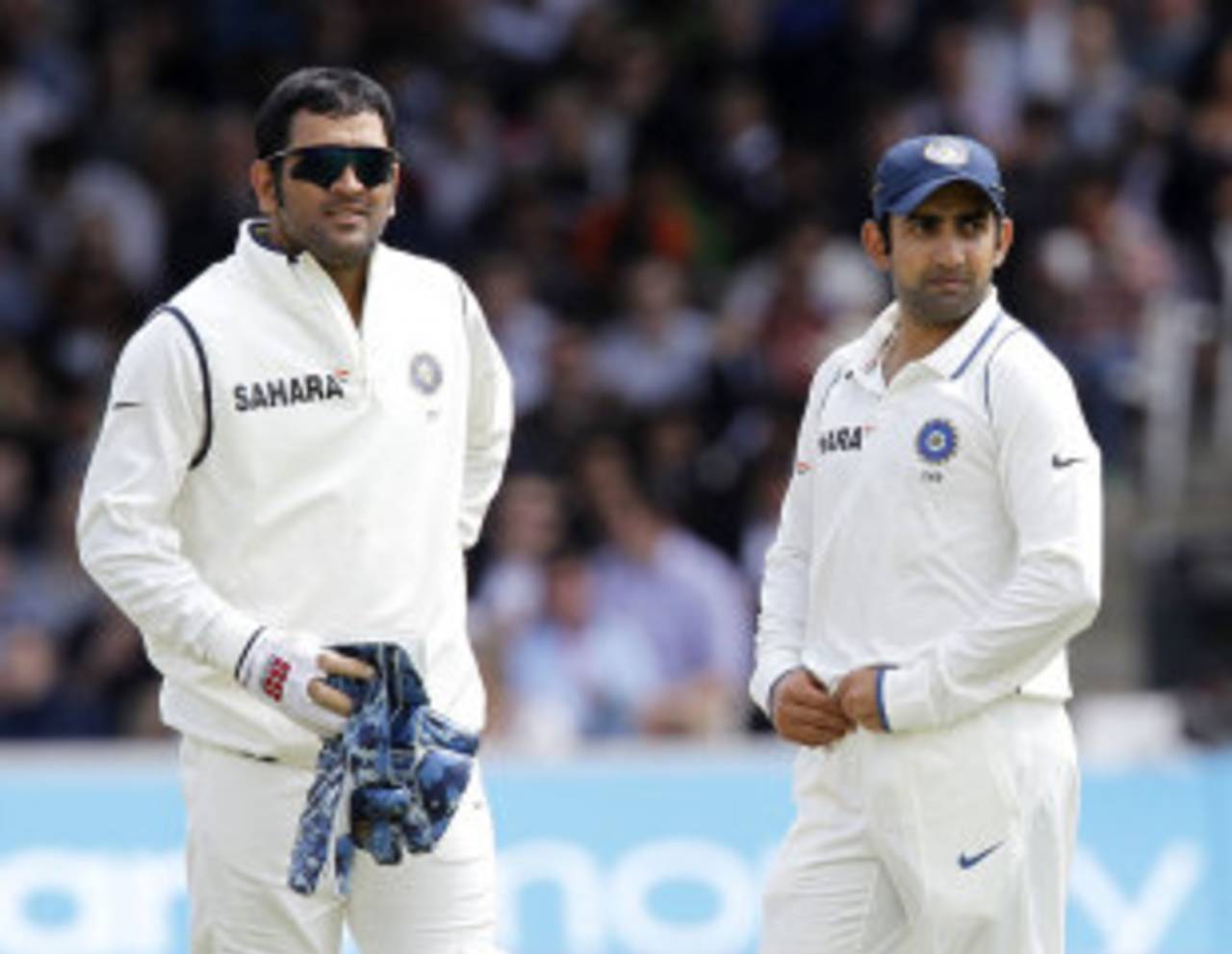'Many factors' in over-rate rule saved Dhoni from possible ban
MS Dhoni escaped the trip-wires of the over-rate through the somewhat open-ended ICC rules that depend on "many factors on the ground" and their interpretation

Gautam Gambhir would have led India at Trent Bridge if MS Dhoni had been found wanting by the Lord's official scorer • AFP
Sharda Ugra is senior editor at ESPNcricinfo; Nagraj Gollapudi is an assistant editor